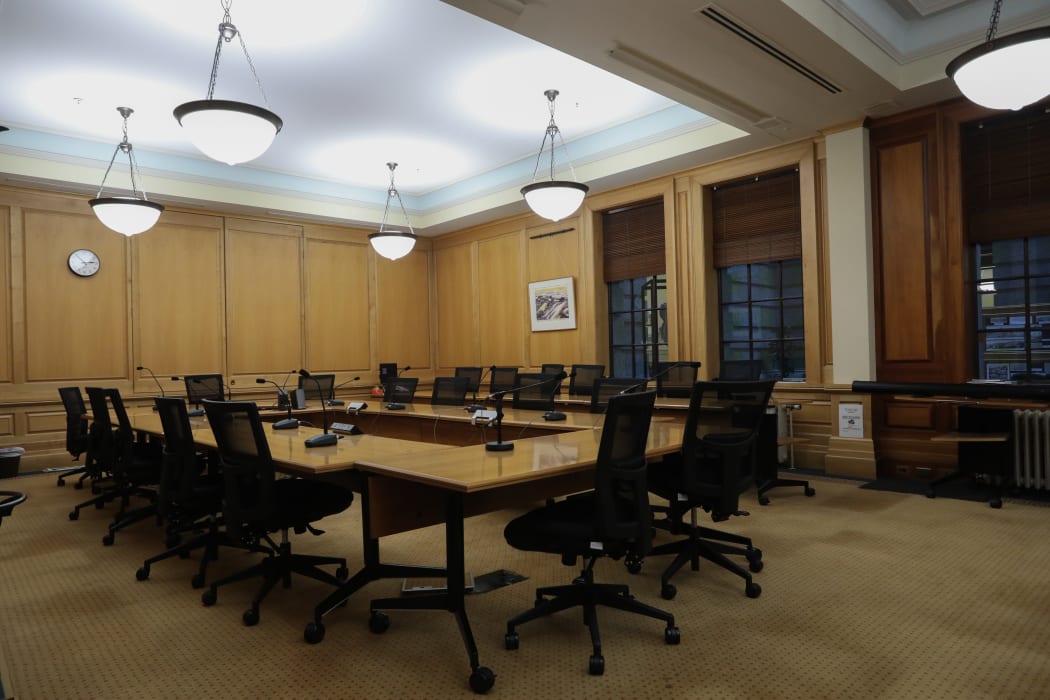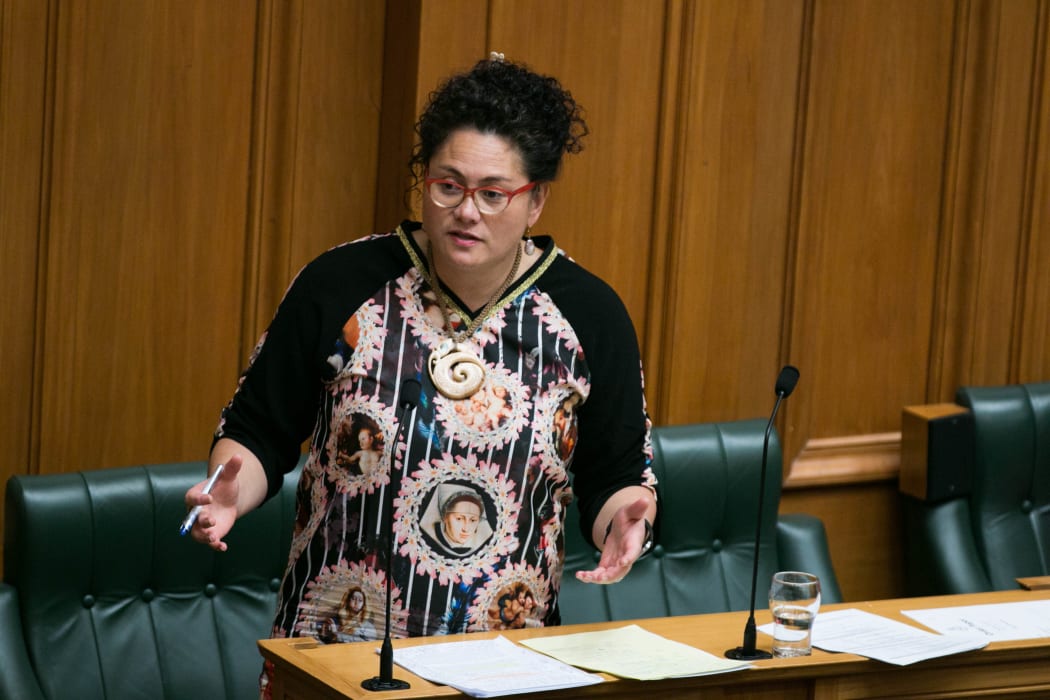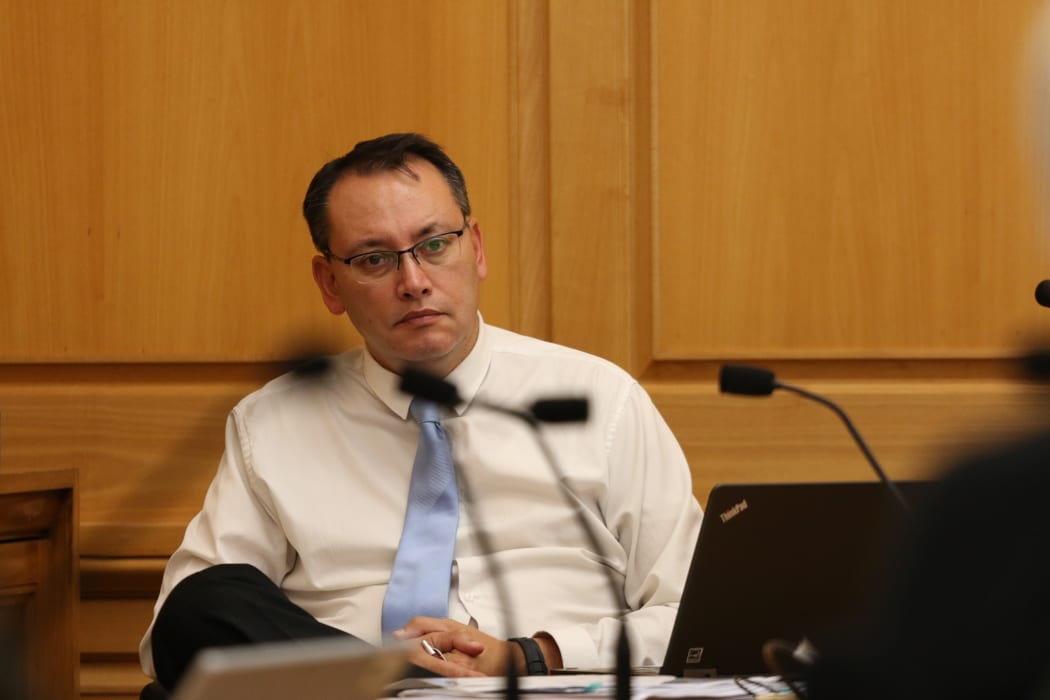Select committees do a lot of the grunt-work at Parliament, most of which goes unnoticed. Daniela Maoate-Cox asks some of the committee chairs to share their highlights from the year.

A select committee room in Parliament House. Select committees are groups of MPs from various parties which gather to consider legislation or petitions, hear from the public and conduct inquiries. Photo: VNP / Phil Smith
From epilepsy, and breast cancer to a smoke-free Aotearoa the Health Committee has canvassed a range of issues this year but for its chairs, the main piece of legislation that has stuck in their minds is a bill on medicinal cannabis.
The official title is the Misuse of Drugs (Medicinal Cannibas) Amendment Bill and it does three things:
-
It will introduce an exception and a statutory defence for terminally ill people to possess and use illicit cannabis and to possess a cannabis utensil;
-
provide a regulation-making power to enable the setting of standards that products manufactured, imported, and supplied under licence must meet;
-
and amend Schedule 2 of the Act so that cannabidiol (CBD) and CBD products are no longer classed as controlled drugs.
“Some people are using it in a medicinal way but the access to what’s currently on the market is illegal,” said Chair of the Health Committee and Labour MP Louisa Wall.
“There are a lot of people who suffer from chronic conditions that by definition are not terminal conditions but they are debilitating and they do assist some of the disability conditions like moto-neuron, multiple sclerosis.”

Chair of the Health Committee and Labour MP Louisa Wall Photo: VNP / Daniela Maoate-Cox
“The scope of who is exempt from prosecution was something that we considered quite thoroughly,” she said.
The committee received just over 1700 submissions and broke into two committees to hear many of the submitters in person.
“It’s captured the imagination of the New Zealand public as it should,” said deputy chair Shane Reti who is also the National MP for Whangarei.

Deputy chair of the Health Committee Shane Reti. Photo: VNP / Phil Smith
Dr Reti said one of the submitters who made an impact was a mother whose disabled child is only stable while using medicinal cannabis.
“The tragedy of this was she has another child as well and the nature of the first child’s condition makes it inevitable that the other child will follow, that the same thing will happen,” said Dr Reti.
“The only thing that stabilised and gave some quality of life to these children was medicinal cannabis and this was particularly moving, particularly the inevitability.”
Most of the issues the Health Committee deals with are serious said Ms Wall.
“We’ve had petitions recently presented about access to some breast cancer drugs and those currently are prohibitive because they cost up to $6000 a month,” she said.
“The people that presented that petition are all suffering from stage four breast cancer and we know based on evidence that was provided, there will be some of them in the New Year who possibly won’t be alive anymore.”
Ms Wall said on average, someone diagnosed with stage four breast cancer in New Zealand is likely to live for 16 months compared to sixty months overseas.
Dr Reti said there have been submitters who have changed his opinion.
“Most recent would be around epilepsy induced foetal abnormalities. I came in with my own 30 years of experience having seen this and seen the steps but there are parts of what my understanding was that has changed listening to petitions.”
A bill goes through several stages before it becomes law and usually ends up at a select committee after its first reading in the House.
The committee is then tasked with examining the legislation, hearing views from the public or interested groups and writing a report back to the House, sometimes suggesting changes that should be included. This normally takes about six months.
Even though committees are a mixture of MPs Dr Reti said the health committee is quite collaborative.
“The select committees are the powerhouse and the work-horse particularly of back-benchers,” he said.
“This is really where a large part of an MP, particularly back-bench MPs, work and hands are applied, [it’s] a very important part and a really good way to sink your teeth into policy and have a real influence.”
The Health Committee can be contacted through the Parliament website.


